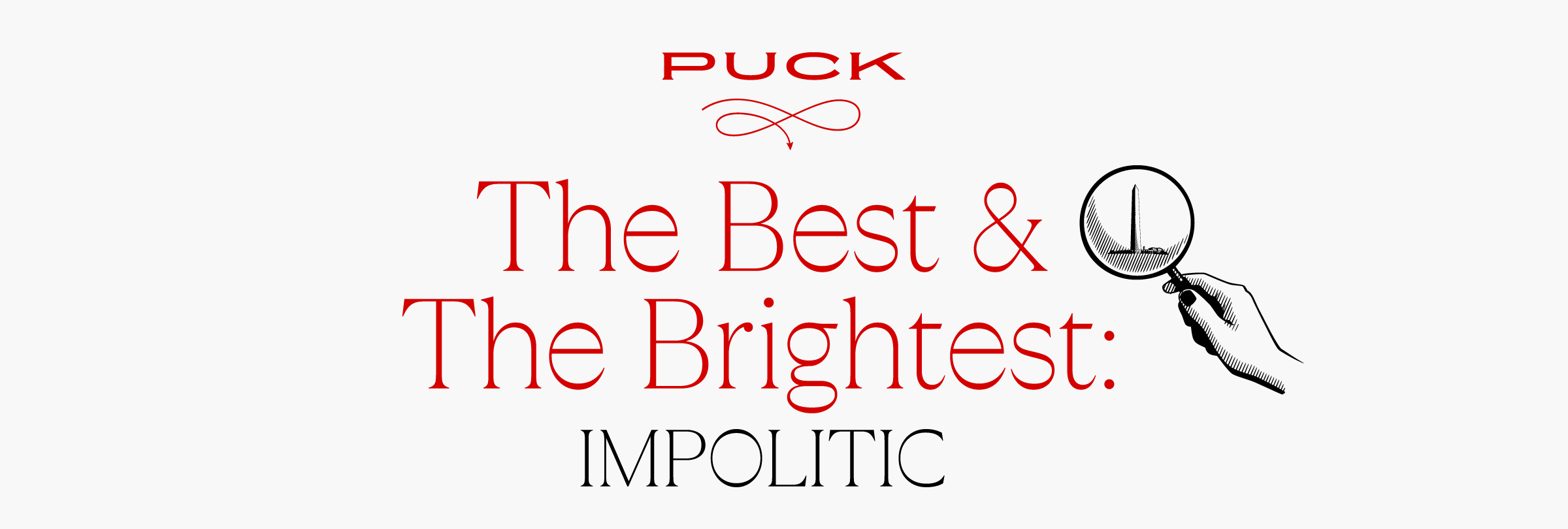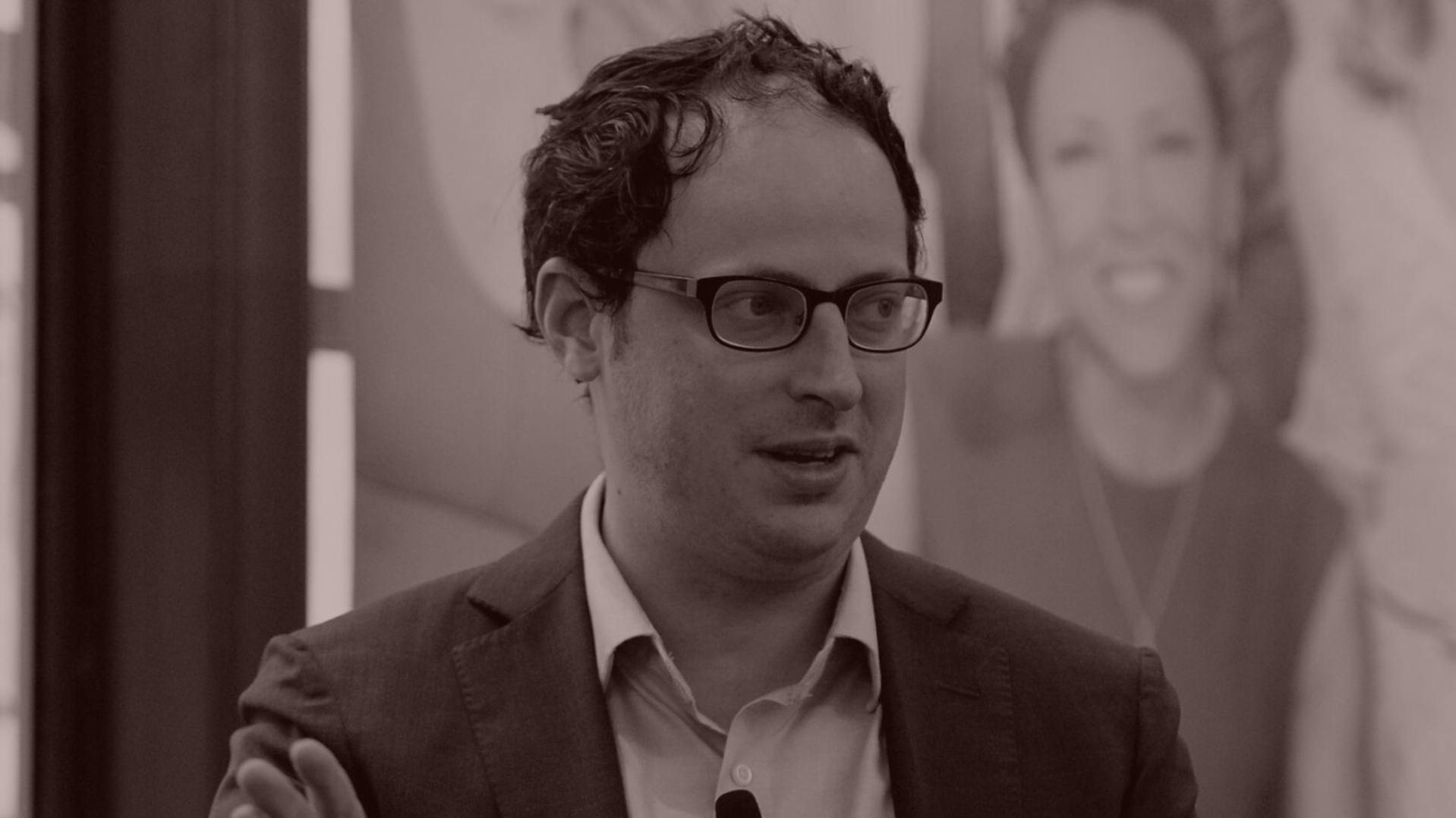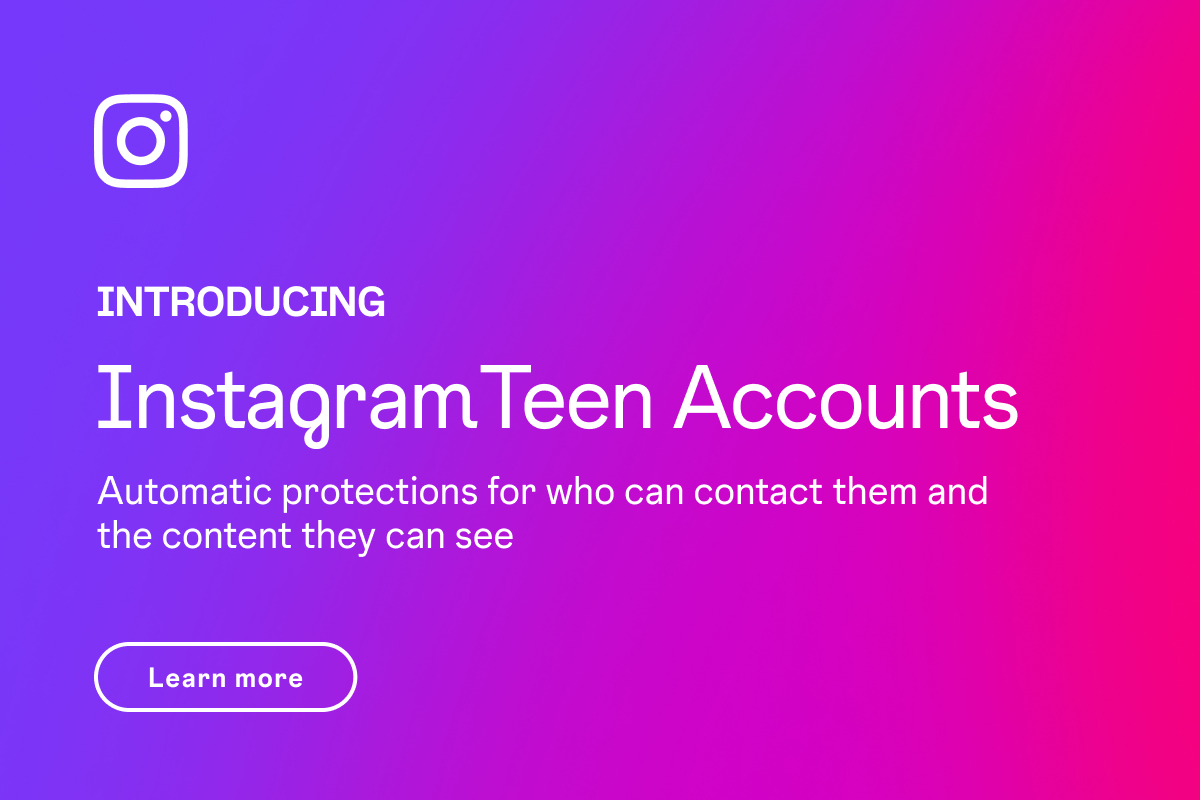 |

|
|
Aloha, hyvää iltaa, and welcome to another edition of The Best & The Brightest: Impolitic, coming at you tonight from Gotham City, where, in just about 48 hours, Tim Walz and J.D. Vance will mount their podiums at the CBS Broadcasting Center on West 57th Street and engage in what promises to be an entertaining 90 minutes of hammer-and-tongs, red-in-tooth-and-claw, rock-em-sock-em rhetorical combat that will almost certainly have no impact at all on the outcome of the presidential race—even though that race is, as former CBS News anchor and living legend Dan Rather once put it, “tighter than a too-small bathing suit on a too-long ride home from the beach.”
With just 36 days to go before November 5 and a new set of fever-spiking, indigestion-inducing New York Times/Siena College polls dropping this morning—showing Harris up by one point in Michigan, two in Wisconsin, and nine in Nebraska’s second congressional district, which she’d need to win if the 270-268 electoral vote scenario that the Times is now touting as more than plausible comes to pass—the tightness of the race is the subject of near-constant chatter among the political class and ordinary voters alike. So digging into the dynamics that are making the race so close seemed a fitting topic for tonight’s column, and who better to chop that topic up with than the world’s best-known and most influential (albeit also the most polarizing) polling guru and election forecaster, Nate Silver.
Silver, of course, pioneered the art and science of aggregating polls and forecasting elections, changing political media forever with his seminal website FiveThirtyEight. He now plies his trade on Substack, where his Silver Bulletin has racked up huge numbers and kept him squarely at the center of the national conversation. He’s also the author of the new New York Times bestseller, On The Edge: The Art of Risking Everything, which features fascinating excursions into the worlds of poker, venture capital, and other venues where probabilistic thinking rules the roost.
Nate and I talked about the book—as well as our shared view that the movies Rounders and Moneyball are, well, everything—on the podcast last week; for that discussion, you can and should listen to the full interview here. But for Nate’s thinking on the state of the presidential race, his ranking of the swing states from most to least likely of Harris winning, his take on whether the G.O.P.’s Electoral College advantage might be vanishing before our eyes, and his thoughts on which VP pick, Vance or Walz, was a bigger mistake (and yes, he thinks both were mistakes), and more, read on.
|
|
A MESSAGE FROM INSTAGRAM
|

|
|
Introducing Instagram Teen Accounts: a new experience for teens, guided by parents.
Instagram is launching Teen Accounts, with built-in protections limiting who can contact teens and the content they can see. Plus, only parents can approve safety setting changes for teens under 16.
So parents can have more peace of mind when it comes to protecting their teens.
Learn More
|
|
|
| But first …
🎧 Essential listening: Last week’s other episode of Impolitic With John Heilemann featured a voice widely considered as indispensable and oracular in the realm he studies and reports on as Nate Silver’s is in his: Andrew Ross Sorkin, the creator and prime mover behind The New York Times’ DealBook franchise on business, finance, and the economy. From rate cuts and tax cuts to Harris and Trump’s contrasting economic policies, the inroads the former is making with Wall Street (to the point where Andrew teased the possibility that none other than Jamie Dimon could wind up being Harris’s treasury secretary if she wins), and the latter’s hold on much of the Fortune 500 and the finance bro crowd, Andrew’s wit, wisdom, knowledge, and insight were, as usual, off the charts. You should definitely check it out here.
You should also make a plan in advance to clear an hour of your Wednesday morning for some super-duper-essential listening. Because yes, that’s right, the Puck Superfriends—Peter Hamby, Dylan Byers, and yours truly—will be coming back due to overwhelming popular demand, recording another of our late-night, post-debate gabfests following the Vance-Walz showdown, and dropping it overnight for your Hump Day delectation. You’re welcome!
And now to those coronary-causing polls and the guy who knows ‘em best…
|
 |
| Nate Silver Solves 2024 |
| The world’s most celebrated—and vilified—election forecaster says this year’s contest is the closest he’s ever seen. In a wide-ranging conversation, Silver explains why Kamala Harris has an edge over Donald Trump, but one so slight that no sane Democrat should take much comfort from it. |
|
|
|
| Love him or hate him—and God knows, pretty much every political junkie in America does one or other, while countless civilians simply obsess over him and his pronouncements around this time every four years—what no one who follows Nate Silver disputes is the outsized influence of his output. Since he burst onto the scene in 2008 with FiveThirtyEight, his seminal platform that turned polling aggregation, election forecasting, and the data journalism based on said aggregation and forecasting into wildly popular and ultimately inescapable features of modern political media, Silver’s work (at The New York Times, then at ABC News and ESPN) has transformed the way that millions of people follow elections and understand their outcomes.
In May 2023, amid sweeping layoffs at Disney, Silver left FiveThirtyEight and turned his attention to finishing what became his new, best-selling book, On The Edge: The Art of Risking Everything. He also launched a Substack called Silver Bulletin, doing much the same stuff he did at FiveThirtyEight, but with one giant dollop of secret sauce: a new, proprietary election forecasting model that Silver contends is appreciably better than the one he built at FiveThirtyEight.
Not surprisingly, Silver Bulletin has been a runaway hit, racking up a nearly a quarter-million subscribers in its first year, earning headlines with each new iteration of its forecasts (which Silver updates every day), and reaffirming its proprietor’s cultural standing as the world’s most celebrated, vilified, and widely invoked data nerd—worshiped by some as oracular, trashed by others as a fraud, and placed at the center of innumerable whack-job conspiracy theories by still others (a category that’s swollen dramatically since Silver became an advisor to Polymarket, a startup backed by Peter Thiel).
Last week, Nate sat down with me for a good long chat on my podcast, Impolitic With John Heilemann. In this lightly edited interview, excerpted from the full episode, we talk through the state of the race; Kamala Harris’s clear but razor-thin advantage over Donald Trump; why Nate still believes that the G.O.P. has a structural advantage in the Electoral College; whether J.D. Vance is actually hurting Trump and Tim Walz is actually helping Harris; why Nate still believes Kamala made a mistake by not picking Josh Shapiro; and what kind of “contingency plans” we should all be making in case shit goes sideways after November 5.
|
|
A MESSAGE FROM INSTAGRAM
|

|
|
Introducing Instagram Teen Accounts with automatic protections for teens.
Instagram is launching Teen Accounts, with built-in protections limiting who can contact teens and the content they can see. Plus, only parents can approve safety setting changes for teens under 16.
This means parents can have more peace of mind when it comes to protecting their teens.
Learn More
|
|
|
|
|
| John Heilemann: One thing I love about Silver Bulletin is that the landing page for the election forecast always starts with the exact same opening line: “Let’s cut to the chase—who’s gonna win the election?” So, Nate, let’s cut to the chase—who’s gonna win the election?
Nate Silver: I’ll be as precise as I can. In our forecast today [September 25]—we update it every day—the probabilities are Harris, 54 percent, Trump, 46 percent. There’s a 0.2 percent chance of a tie, but we can ignore that for now. So, if you’re a poker player, you’d rather have the 54 than the 46, but for all intents and purposes, it’s about as close as elections get.
The Harris campaign recognizes that the race is really close, but because they have more dough, a bigger and better field operation, and a more consistent and reliable candidate, they’d rather have their hand to play than Trump’s. Which matches up with your current assessment, yes?
Yes. Look, they’ll have more money to spend in the closing few weeks of the campaign, so they’ll have more ad impressions in Charlotte, Raleigh, and Philadelphia, etcetera. They probably have a superior ground game, which was stymied in 2020 by the pandemic, where Democrats weren’t doing a lot of door-knocking. But there’s some question about how much that stuff will matter. We haven’t really had a stable period in the race since Biden was pushed out; it’s just been one tumultuous event after another. And now we don’t have any more [Harris-Trump] debates. We have the V.P. debate next week, but those usually don’t move the needle very much. There’s no more Federal Reserve meetings until the day after the election. So all of a sudden, there’s just not a lot happening, and we’ll kind of find out where the natural gravity of the race is, and how much more you can get across the finish line from more ad impressions and more ground game.
In your emails to Silver Bulletin subscribers and again just now, you’ve been making the point that this is the closest election you’ve ever seen. Say more about the data that illustrates how insanely tight the race is.
In all seven of the most important swing states, our polling average has the race within two points. And I would bet we don’t get out of that range very much going forward—we’ll maybe get to a three-point lead somewhere by the time we get to November. So what that means is that you could have a case where on November 5, Harris or Trump sweeps most or all of the swing states for a convincing win in the Electoral College. But although Harris is ahead in the national polls by, on average, two and a half or three points, Democrats have had an Electoral College disadvantage, at least in the past two elections, so those things basically cancel each other out. That gets us to about as close to 50-50 as you can get.
We’ll come back to the Electoral College, but in the meantime, the other day you did a ranking of the swing states from most to least likely of Harris winning, according to current polling: Michigan, Pennsylvania, Wisconsin, Nevada, North Carolina, Georgia, Arizona. Which was a bit surprising, given the presumption when Harris became the nominee that she’d be weaker than Biden in the Blue Wall states due to their older and whiter populations, but stronger in the more diverse Sunbelt states.
If you buy the polling, we’ve seen some actual racial depolarization, meaning that Harris is polling a little better with white voters than Biden did four years ago, and a little bit worse—and in some cases quite a bit worse—with certain racial and ethnic minorities. So, for example, among younger Black voters, especially younger Black men, there’s still a Democratic edge, but not like it has been in past elections. If that’s true, the states that are a bit whiter, the Pennsylvanias and Wisconsins, become more swing states, and the Georgias and Arizonas become less so.
Now, look, polling is a challenging enterprise. When you do polls, you tend to get a lot of old white women answering the phone; it can be harder to get younger Hispanic and Black men. But if you buy the polls—and maybe this is good for the country—things are a little bit less racially polarized. So you see Harris doing better, relatively speaking, in the north of the country and struggling in the more diverse Sunbelt states.
Okay, back to the Electoral College. On September 5, you published a piece headlined “The Electoral College Bias Has Returned With a Vengeance,” arguing that Harris needs to win the popular vote by more than two and a half points to carry the Electoral College—and “4 points to be truly safe.” Which is basically the conventional wisdom among political pros. But this week The New York Times’s Nate Cohn, who for our purposes today I’ll refer to as the Lesser Nate…
No, no, I’m a big fan of Nate C.!
As I am—just fucking around! Anyway, he published a much-discussed piece saying “there’s growing evidence” that Trump’s “once formidable advantage in the Electoral College … might be shrinking” and that Harris may not “need to win the popular vote by much to prevail.” He points to the fact that she’s ahead by 2.6 points nationally in the Times’s polling average and by 1.8 points in Wisconsin—the tipping-point state in 2020—meaning Trump’s Electoral College advantage is less than a point, compared to 2020, when it was 3.8 points. And he points out this is part of a larger pattern in which current polling shows Harris overperforming Biden’s results in Michigan, Pennsylvania, and Wisconsin but underperforming how Biden did nationally. What do you think of all that, in light of what you wrote?
One thing we’ve seen is that Harris has had a relatively strong string of polls in Pennsylvania. And, look, there’s a scenario where she wins with exactly 270 electoral votes through Pennsylvania, Wisconsin, and Michigan, along with the 2nd Congressional District of Nebraska. (Nebraska awards its electoral votes by congressional district). If she wins all of that and loses the Sunbelt states, including Nevada, she’s at 270 to 268, and that is a winning map, just narrowly. So that scenario could be a case where there’s not much of a popular vote edge at all.
Our model tends to look at things more probabilistically. Wisconsin is a state where the polls have considerably overestimated Democrats the past couple of elections. Pennsylvania is a state where Joe Biden was a favorite son. And Harris doesn’t have that. So those states would make me nervous. Michigan is a little bit safer; the one wild card is that you have a substantial Palestinian-American population there, but it seems like Harris has defused it relative to Biden. But you have to win all three of those states in the 270 scenario, and right now there’s not a really great backup option if Harris loses one of them.
I’ll put it like this: There’s no reason to feel safe about this Michigan-Wisconsin-Pennsylvania path, given how narrow it is and given the polling errors in those states and in recent past elections.
Fair enough, but just to put as fine a point on this as possible: Do you still believe Harris has to win the national popular vote by three to four points to feel comfortable about her winning the Electoral College?
It’s a matter of what you want your comfort level to be. The point spread is about two points according to our model in the popular vote. So if Harris were to win the popular vote by exactly two points on November 5, you’d say the Electoral College is a tossup—which is less of an Electoral College advantage for Trump, by the way, than in 2016 or 2020, when it was three or four points. Nate C. has the point spread at one point—and look, it’s not crazy. But I’ve spent a lot of time on this problem and I would still bet on, to be safe, three or four points; to have a chance, one or two points. There are wild-card scenarios where you have weird polling errors that cancel each other out in different directions, but I don’t think Democrats should look at a poll showing Harris ahead by one point nationally and feel comfortable about it.
|
|
|
|
|
| The V.P. debate is coming up, and, as you mentioned, usually debates between the running mates—and running mates in general—don’t matter much, if at all. But J.D. Vance has been an incredible lightning rod in this race, and way more of a liability for the ticket than an asset. Do you think he actually hurts Trump’s chances of winning? And secondly, on reflection, are you still of the view that, as solid as Tim Walz has been on the other side, Harris should have picked Josh Shapiro?
Yeah, I do. There’s like a 35 percent chance that Pennsylvania ends up being the decisive state in this election. To get one extra point that Shapiro might have added in Pennsylvania would be worthwhile to Harris. But picking Vance was a bigger mistake. In part, because Trump was, I think, inspired by Donald Trump Jr. and Eric Trump and not the strategists on the campaign, and in part because they made the pick at a time when everyone thought Trump was sure to win. They picked J.D. Vance thinking they could extend the MAGA legacy. This was not a pick that was made with an eye toward appealing to the average swing voter, whereas Walz is a normal pick [in that regard].
I’m from the Midwest, so I thought the football coach/suburban dad shtick was kind of funny at first, and then wears a bit thin. So I would have picked Shapiro, taken the point in Pennsylvania. But you have a basically normal V.P. versus one that was subpar—maybe not to a Sarah Palin degree, but not a pick you make if you’re trying to maximize your chance of winning.
You were quoted in The Guardian recently saying that one advantage of probabilistic forecast models is that they allow people to prepare for what might happen in the future. And you said that if the forecast says the outcome of Harris versus Trump is basically a coin flip, people should be making their “contingency plans” for after the election—not necessarily stockpiling ammo and peanut butter, though I don’t think that’s a terrible idea, personally. But figuring out strategies to protect American institutions in the event of Trump reclaiming the White House. Are you making contingency plans, and what are they?
I’m a lucky and privileged person who probably doesn’t have existential stakes, although, as a gay person, I’m a little worried about the G.O.P. shift toward new waves of anti-L.G.B.T.Q. hysteria. I understand that I don’t have control over the election outcome, as much as people might try to read ulterior motives into my forecasting. But the point I made in The Guardian is that there is not, as far as I can tell, one big organizational brand devoted to protecting democracy.
The Democratic Party would like to have a word.
Well, that’s what they would say. I think it’s really important that these efforts are nonpartisan. The Democratic Party, I thought it was a bad decision when they were lobbying to keep R.F.K. Jr. off the ballot in the swing states, which was undemocratic, with a lower-case d, in that it gives voters less choice. So I don’t think their shit never stinks. And I think that while the news media can be opinionated, it’s important for them not to carry the water for one party or the other. The basic story, John, is that we had pretty strong guardrails and they were weakened over Trump’s four years in office, and I don’t want to predict what would happen over another four. But I think it’s really important that we have strong, independent institutions. One thing Trump did not do in his four years in office was meaningfully curb the freedom of the press. And I think preserving those sorts of institutions is very important.
I would say that the most on-point thing you’ve written lately is this: “On November 5th, we’ll all wake up with a lot of uncertainty about who will win. … Anything I say about the election, or anything any poll says, isn’t going to change that. If you care about the outcome, then vote, donate, volunteer, or try to persuade your friends. There’s also another option: chilling the eff out.” There’s basically zero chance of you, me, or anyone we know chilling the fuck out. But the rest seems right on.
In general, there’s a strong inverse correlation between complaining and doing, and between complaining and success. Often, whining about the polls or whining about a New York Times headline is a way for people to feel like, Oh, I’ve done my political good deed for the day. (Scoffs.) Here’s an idea: Why not help a local candidate instead? Republicans realized years ago that things like state Supreme Court races are really important to the downstream ecosystem of American politics. Or state legislative races, which determine redistricting every 10 years in Congress. People are too focused on the presidential race and the big headlines and not on the grind of politics, but things like these matter. A lot.
|
|
|
|
| FOUR STORIES WE’RE TALKING ABOUT |
 |
|
 |
| Netflix Comp Wars |
| Digging into the standoff between Netflix and talent agents. |
| MATTHEW BELLONI |
|
 |
| Delphine Streets |
| Illuminating the pressure on the new C.E.O. at Dior. |
| LAUREN SHERMAN |
|
 |
|
|
|

|
 |
|
|
|
Need help? Review our FAQs
page or contact
us for assistance. For brand partnerships, email ads@puck.news.
|
|
You received this email because you signed up to receive emails from Puck, or as part of your Puck account associated with . To stop receiving this newsletter and/or manage all your email preferences, click here.
|
|
Puck is published by Heat Media LLC. 227 W 17th St New York, NY 10011.
|
|
|
|





















